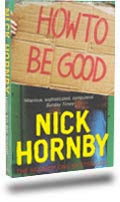 Recently I have spent countless hours pouring over a wonderful book entitled "1000 Recordings To Hear Before You Die" By Tom Moon. In reading it I am struck by the staggering amount of potentially awe inspiring music that I have yet to engage with. On the other hand I am also having fun picking apart some of Moon's picks (or lack therefore in some cases - only 1 Bowie album made the list!)
Recently I have spent countless hours pouring over a wonderful book entitled "1000 Recordings To Hear Before You Die" By Tom Moon. In reading it I am struck by the staggering amount of potentially awe inspiring music that I have yet to engage with. On the other hand I am also having fun picking apart some of Moon's picks (or lack therefore in some cases - only 1 Bowie album made the list!)Moon's official 1000 Recordings To Hear blog is also excellent, and he often posts further information about some of the recordings or related material he references in his book. He also makes recommendations for "next steps" if you like a certain recording, as well as guides for exploring certain genres, such as the recently posted "Five Steps In an Exploration of Jazz". This is a great site to use as a launching pad for further musical exploration (and eventual obsession).
It is a fascinating premise in some respects, as the concept of "essential listening" may not necessarily translate into a list of one's favourite recordings. It is a valid approach to examine what recordings would be considered essential canon, mainly those that are considered to be foundational, influential and need to be experienced to appreciate much of what has come afterwards.
A parallel would be the more common act of identifying the various pieces of literature that are foundational to Western culture or that assist one in grasping the ethos of a certain era. For example, James Joyce's "Ulysses" is justifiably promoted as one of the quintessential Modernist novels, yet despite this there are probably few who would have the tenacity, patience or desire to read through the many dense stream of consciousness passages on a regular basis.
In Moon's exploration of essential music he took a long journey and acknowledged that with some genres he knew little and had to do some exploring first, finding some hidden and perhaps more obscure gems along the way. This is an act of pure love, where the ego inherent in the notion of one's own individual taste is partially stripped away and there is an openness to wonder from a variety of previously unknown sources.
As always, it is a very subjective exercise that is bound to create debate among people who care about music. Though many of the recordings identified have historically received consensus around being essential (i.e. "Pet Sounds" by the Beach Boys, The Beatles "The White Album") others are slightly suspect (inexplicably a Britney Spears album made the list). Regardless, it is a great catalyst for opening up new doors and I have discovered many recordings that I never knew about that I will hopefully engage with before I shed this mortal coil.
I end with a few of Moon's selections that may be more obscure to some - enjoy!;
Oum Kalthoum (1904-1975) Recognized as the Arab world's most famous and distinguished singer of the 20th century:
Memphis Minnie (1897-1973) - A pioneering female blues singer and guitarist who was popular during the Great Depression and WWII;
Of course I will endeavor to post my own essential recordings list for the edification of others (DISCLAIMER: I'll probably start with 10 recordings, as attempting to compile 1000 would have a negative impact on my family life and would probably take me a few years living as a quasi-hermit to complete).
OOOH... I almost forgot the obligatory closing question - what are some essential recordings from your vantage point?










